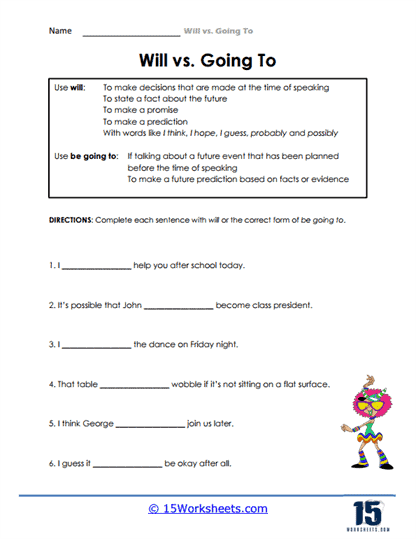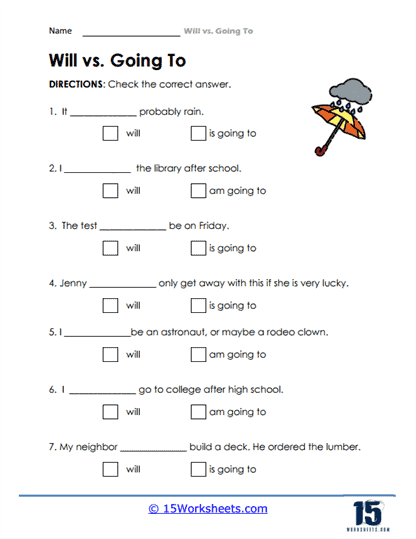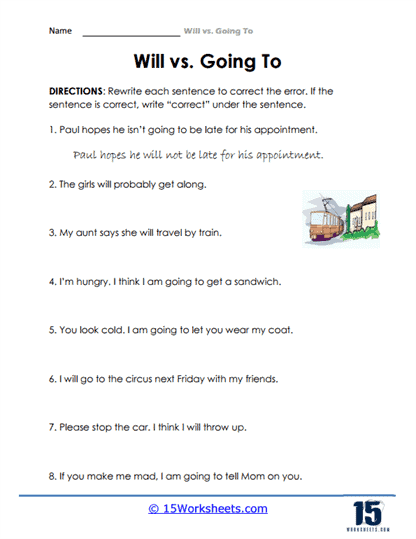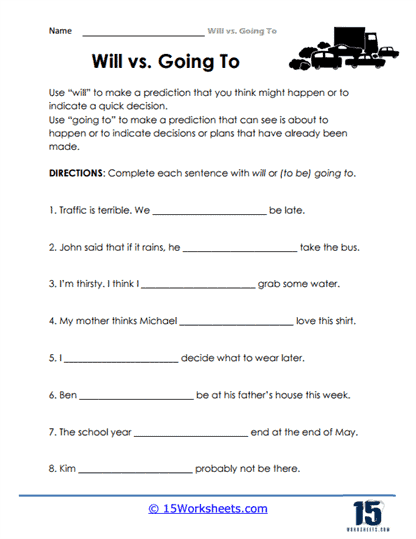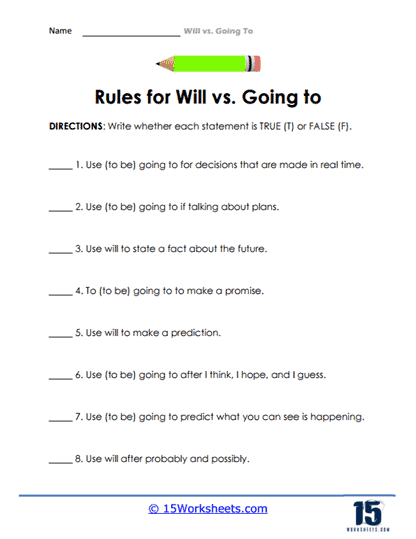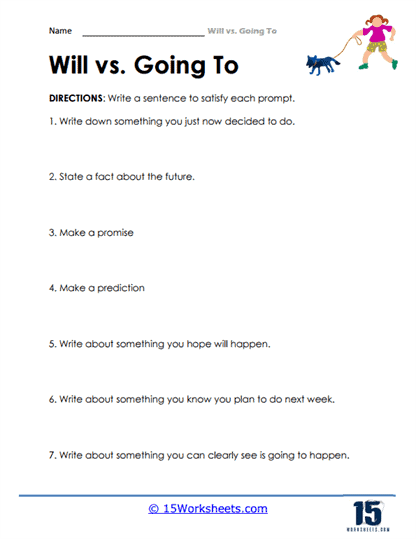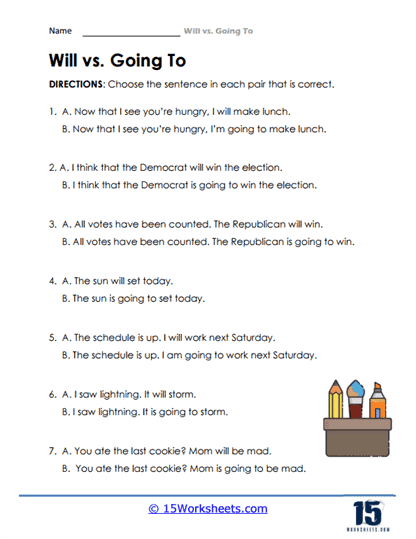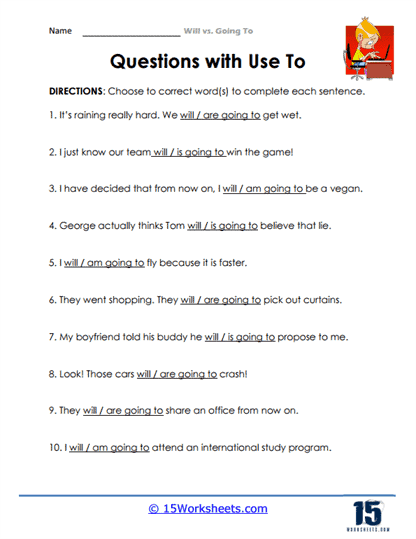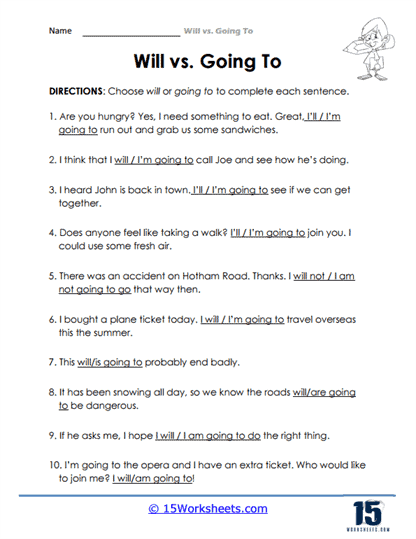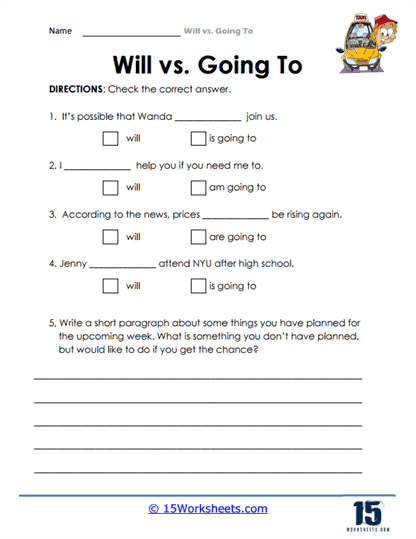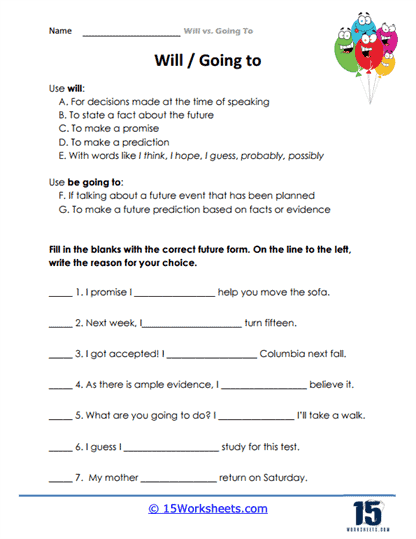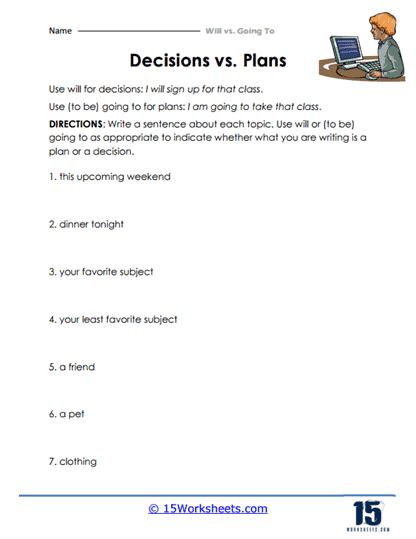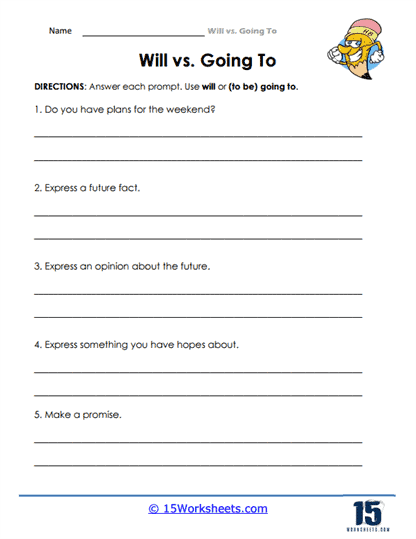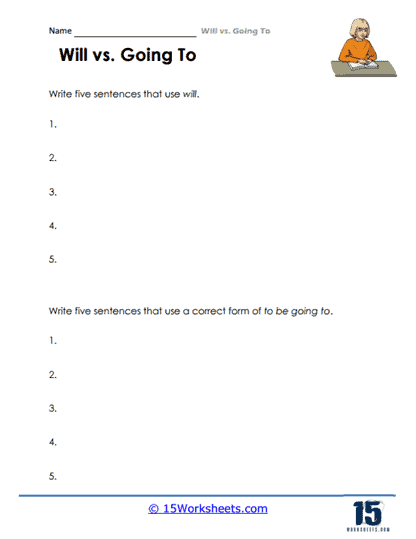Will vs. Going To Worksheets
All About These 15 Worksheets
These Will vs. Going To worksheets can be a helpful tool for students to practice and reinforce their understanding of the correct usage of “will” and “going to” when talking about the future in English.
The first worksheet in this collection begins with a brief explanation of the difference between the two structures. It’s a good way to introduce the topic to the students before moving on to the rest of the worksheets that may require further mastery on the topic.
These worksheets also include a mix of multiple choice questions, fill-in-the-blank exercises, and short writing prompts where students have to create sentences using the correct form of “will” or “going to”. By completing these worksheets, students will be able to:
- Complete sentences by supplying them with “will” or “going to” appropriately;
- Spot errors in the usage of “will” and “going to” and rewrite sentences to correct them;
- Understand the form and function of “will” and the “be going to” verb;
- Respond to writing prompts by using “will” and “going to” in sentences correctly;
- Understand how the forms of “will” and “going to” in sentences can be used and transformed to convey meaning according to various contexts;
- And create their own sentences using “will” and “going to” correctly.
By providing students with a variety of exercises, these worksheets can help students improve their understanding of the different ways to talk about future events in English, and enhance their writing and communication skills. It is important to emphasize that both “will” and “going to” can be used to talk about future events, but their usage depends on the speaker’s intention and context. For example, “will” is often used to talk about predictions, while “going to” is often used to talk about plans or intentions.
How are “Will” and “Going To” used in sentences?
“Will” and “going to” are two common ways to talk about future events in English. Although they can be used interchangeably in some cases, they often convey different meanings and intentions. Here are some examples and explanations of their usage:
Will
- Used to make predictions or express future certainty based on the speaker’s belief or assumption. For example:
- I think it will rain tomorrow.
- She will be a great doctor one day.
- Used to express spontaneous decisions or intentions made at the moment of speaking. For example:
- Oh, I forgot my umbrella. I’ll borrow yours.
- I’m hungry. I’ll make some popcorn.
- Used to make promises or offers. For example:
- I’ll help you with your homework later.
- Don’t worry, I’ll pick you up from the airport.
Going to
- Used to talk about plans, intentions or arrangements that have already been made. For example:
- We’re going to visit the Grand Canyon next month.
- They’re going to have a baby next year.
- Used to talk about future events that are likely to happen based on present evidence or situation. For example:
- The sky looks cloudy. It’s going to rain soon.
- He’s been studying hard. He’s going to pass the exam.
- Used to talk about predictions that are based on evidence or reasons. For example:
- Based on the statistics, I think the company is going to have a successful year.
- The traffic is heavy. We’re going to be late for the meeting.
It’s important to note that there are many exceptions and variations to the usage of “will” and “going to” in different contexts and situations. However, understanding their basic meanings and usage can help learners communicate more accurately and effectively in English.

